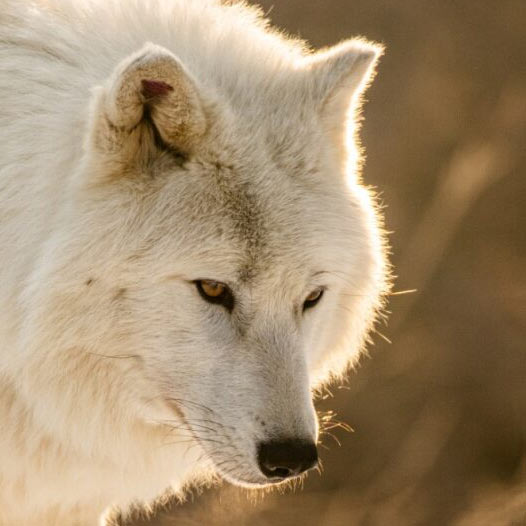
|

|

|
TORONTO, ON, Friday, May 16, 2025: It’s Endangered Species Day, and the reality facing many species is simple: Out of sight, out of mind, off the planet. Accredited zoos and their partnerships are more critical than ever before in the fight against extinction and we know we need to consider how to do things in fundamentally different ways. Simply put, we know better, so we need to do better. Nonprofit Species360 and your Toronto Zoo have proudly announced a new partnership to advance global wildlife conservation. The collaboration focuses on expanding access to data related to cryopreservation—the process of freezing and storing genetic material such as sperm, eggs, embryos, and cell cultures for future conservation use.
The initiative builds on the Species360 Zoological Information Management System (ZIMS), already used by reputable zoos, aquariums, and wildlife organizations around the world. Working together, Species360 and the Toronto Zoo are enhancing ZIMS to better catalogue and track cryopreserved samples. These new capabilities will help conservation scientists more easily access the information they need to support species recovery and genetic rescue efforts worldwide. |

|
Cryopreservation Safeguards Species on the Brink of Extinction
Wildlife faces increasing threats from habitat loss and climate change. Cryopreservation provides a way to store genetic material for future use, helping to preserve biodiversity and prevent extinction.
Cryopreserved material plays a critical role in enhancing the genetic diversity of small or isolated populations, enabling assisted reproductive technologies like artificial insemination and in vitro fertilization, and acting as a genetic backup for endangered species.
Leading zoos, aquariums, and conservation institutions worldwide use Species360’s ZIMS to record and share comprehensive husbandry, medical, and population management information on species — including managing repositories of traditional veterinary samples. These samples are valuable for diagnostic tests and medical research, and some contain DNA that may have potential for future advancement in species preservation technology.
Now, Species360 and the Toronto Zoo are expanding ZIMS to create a comprehensive cryopreservation database for viable genetic samples such as gametes, embryos, and cell cultures that can enable more coordinated global biobanking efforts.
“Cryopreservation is still in its early stages for many species, but its potential is enormous. Through collaboration and data-driven solutions, your Toronto Zoo and Species360 are committed to ensuring that conservationists have the tools they need to protect wildlife for future generations,” said Dolf DeJong, CEO, Toronto Zoo.
|

|
Global Database Facilitates International Efforts
To support global conservation goals, the initiative will help preserve genetic diversity, make better use of resources, coordinate cryopreservation efforts across regions, and improve how genetic samples are collected and used. It aligns with key international policies like the Nagoya Protocol, CITES, and IUCN biobanking strategies.
For over 50 years, Species360 and its member institutions have supported global species management through ZIMS. Today, ZIMS provides the world’s largest set of population, medical, and lifecycle data for more than 26,000 species, including those critically endangered or extinct in the wild.
By integrating cryopreservation data into ZIMS, conservationists will be able to:
- Standardize and secure data that is essential for cryopreservation of living samples;
- Align and integrate with partners like global biobanking platforms and the International Union for the Conservation of Nature (IUCN);
- Establish global metrics for sample holdings that can inform species action plans and coordinate conservation priorities;
- Support global collaboration promoting local action and prioritization of sample collection for species conservation.
"This partnership is an important step in preserving the genetic material of threatened species for strategic conservation," said Jim Guenter, CEO of Species360. "By working together, we can make a lasting impact on global biodiversity." |

|
Want to learn more about species reintroduction programs such as the black-footed ferret and elkhorn coral, both of which benefited from cryopreservation? |
About Toronto Zoo
The Toronto Zoo’s mission is to connect people, animals, conservation science and traditional knowledge to fight extinction and our vision is a world where people, wildlife and wild spaces thrive.
An iconic tourist attraction and Conservation organization, the Toronto Zoo boasts a number of leading programs for helping wildlife and their natural habitats – from species reintroduction to reproductive research. A world-class educational centre for people of all ages, the Toronto Zoo is open every day including December 25 and attracts approximately 1.3 million guests each year.
Toronto Zoo is accredited by the Association of Zoos and Aquariums (AZA). The Zoo has also achieved the Canadian Council on Animal Care (CCAC) Certificate of Good Animal Practice® and is inspected by the Ontario Ministry of Agriculture, Food and Agribusiness (OMAFA).
About Species360
Species360 is a global nonprofit organization dedicated to improving animal care, plant collection management, and species conservation through the power of shared data. For nearly 50 years, Species360 has maintained the world’s most comprehensive knowledgebase on more than 22,000 animal species, contributed by over 1,300 zoos, aquariums, botanical gardens, wildlife centers, and research institutions in 105 countries.
Media Contacts:
Toronto Zoo
Amy Baptista
Species360:
Gavrielle Kirk-Cohen
|
Toronto Zoo, 361A Old Finch Ave, Toronto ON, M1B 5K7
View Toronto Zoo’s Privacy Statement
We acknowledge the land we are on is the traditional territory of many nations including the Mississaugas of the Credit, the Anishnabeg, the Chippewa, the Haudenosaunee and the Wendat peoples and is now home to many diverse First Nations, Inuit and Métis peoples. We also acknowledge that Toronto is covered by Treaty 13 with the Mississaugas of the Credit and the Williams Treaty signed with multiple Mississaugas and Chippewa bands. |
|
|
|
|
 join ourMEDIA LIST
join ourMEDIA LIST


















